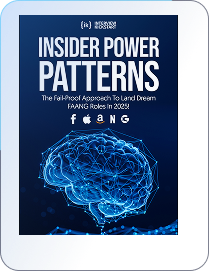Spring Framework is a popular and widely used framework for developing enterprise-level Java applications and programs. Spring Framework is the preferred choice of Java developers and software engineers due to its extensive feature set, ease of use, and flexibility.
Spring Framework interview questions, as well as other Spring concepts such as Spring OOPs, Spring JDBC, Spring MVC, Spring Hibernate, Spring AOP, and so on, are an important part of Spring-based interview. To answer these questions, you must be thorough with Spring Framework fundamentals. In this article, we’ll look at some of the most common Spring Framework interview questions and answers.
If you’re a software engineer, coding engineer, software developer, engineering manager, or tech lead preparing for tech interviews, check out our technical interview checklist, interview questions page, and salary negotiation e-book to get interview-ready!
Having trained over 9,000 software engineers, we know what it takes to crack the most challenging tech interviews. Since 2014, Interview Kickstart alums have landed lucrative offers from FAANG and Tier-1 tech companies, with an average salary hike of 49%. The highest-ever offer received by an IK alum is a whopping $933,000!
At IK, you get the unique opportunity to learn from expert instructors who are hiring managers and tech leads at Google, Facebook, Apple, and other top Silicon Valley tech companies.  Our reviews will tell you how we’ve shaped the careers of thousands of professionals aspiring to take their careers to new heights.
Want to nail your next tech interview? Sign up for our FREE Webinar.
Let’s go ahead and look at some common Spring framework interview questions and answers to help you prepare for your upcoming interview. Here’s what we’ll cover in this article:
Take a look at some more popular Spring Boot Interview Questions for your interview prep here.
In this section, we’ll cover some basic and advanced Spring interview questions and answers for freshers and experienced developers. Let’s take a look.
This is a very common Spring framework interview question asked at software engineering interviews.
The Spring configuration file is an XML file that holds information about Classes and their configurations. Configuration files need to be appropriately written to avoid errors during runtime.
This is one of the most common Spring framework interview questions asked at java developer and FAANG software engineering interviews. The main components of the Spring framework include:
The Spring IOC container manages the complete lifecycle of Objects created using the framework. It reads the configurations of class metadata (provided either through SML files, Java code, or Java annotations) and uses Dependency injection to manage various components used in the application.
Dependency injection is a feature by which objects are created. While employing Dependency Injection, you don’t create objects; you only specify how the objects are created. You also describe how components need to be connected, and the Spring IOC container wires all your components together.
This is another common Spring framework interview question asked at technical interviews. Dependency Injection can be achieved by:
The types of IOC containers that are present in the Spring Framework include:
Tight Coupling is a state when a particular Class A is entirely dependent on the methods and functions of Class B. A notable benefit of Spring, unlike many other frameworks, is that it allows both Tight Coupling and Loose Coupling between classes.
Beans are Objects in Spring that are fundamentally managed, wired, and configured by the IOC Container. Beans within the Spring framework can be wired together through the feature of Dependency Injection.
This is a common Spring framework interview question often featured in technical interviews. Some noteworthy features of the Spring framework include:
Some limitations associated with auto-wiring include:
Annotation wiring isn’t on by default in the Spring framework. It must be enabled in the Spring configuration file by configuring the <context:annotation-config/> element.
In Spring, the @RequestMapping annotation is primarily used to map an HTTP request to a particular Class or Object within the controller. The @RequestMapping annotation in Spring can be applied at the Method Level and the Class Level.
This is one of the most popular Spring framework interview questions asked in technical interviews.
The DAO support feature makes it easy to work and switch between persistence technologies. The feature helps developers code programs without catching exceptions specific to different technologies, ensuring uniformity and uninterrupted coding.
The Classes in the JDBC API include:
Check some more Spring MVC interview questions here.
We hope that the Spring framework interview questions and answers provided above will assist you in preparing for your upcoming Java developer or software engineering interview. Keep your Spring Framework concepts clear and practice mock interview questions to ace your technical interview.
Also, check out these Top Java Interview Questions to practice for your next coding interview!
Q1. What do you understand from Advice in Spring?
An Advice in Spring is an action taken at JoinPoint by an Aspect. The types of advice used include before, after, and around.
Q2. What is the purpose of Aspects in Spring?
Aspects in Spring are mainly classes used to support enterprise application concerns critical features such as logging, transaction management, caching, and profiling.
Q3. Are Spring framework interview questions asked in coding interviews?
If you are a Java developer, you can expect Spring framework interview questions in your tech interview. Spring is one of the most widely used Java frameworks to code Java enterprise-edition software, and hence it is a crucial part of coding interviews.
Q3. In what type of technical interviews are Spring framework interview questions asked?
Spring framework interview questions are asked in tech interviews for Java developers. In software engineering interviews at FAANG+ companies, you’re expected to be well-versed with popular Java application framework technologies.
Q4. Are Spring Interview Questions asked at design interviews at FAANG companies?
Yes, if you are a Java developer, you can very well be asked Spring interview questions at design interviews, primarily because Spring is one of the foremost frameworks used for front-end development.
Q5. What is the need for using the render() function in Spring?
Spring’s render() function returns single elements that represent native DOM elements. The render() function returns the same value whenever called.
If you’re preparing for a Spring Framework interview or any other type of technical interview, register for our free webinar to get expert advice from FAANG+ industry experts on nailing technical interviews at top tech companies.
We’ve trained over 9,000 engineers to land multiple offers at the biggest tech companies and know exactly what it takes to nail tough technical interviews, thanks to our expert instructors who are hiring managers at FAANG+ companies.
Sign-up for our free webinar now!
Attend our free webinar to amp up your career and get the salary you deserve.

693+ FAANG insiders created a system so you don’t have to guess anymore!

100% Free — No credit card needed.

Time Zone:






Get your enrollment process started by registering for a Pre-enrollment Webinar with one of our Founders.

The 11 Neural “Power Patterns” For Solving Any FAANG Interview Problem 12.5X Faster Than 99.8% OF Applicants
The 2 “Magic Questions” That Reveal Whether You’re Good Enough To Receive A Lucrative Big Tech Offer
The “Instant Income Multiplier” That 2-3X’s Your Current Tech Salary

The 11 Neural “Power Patterns” For Solving Any FAANG Interview Problem 12.5X Faster Than 99.8% OF Applicants
The 2 “Magic Questions” That Reveal Whether You’re Good Enough To Receive A Lucrative Big Tech Offer
The “Instant Income Multiplier” That 2-3X’s Your Current Tech Salary
Just drop your name and email so we can send your Power Patterns PDF straight to your inbox. No Spam!
By sharing your contact details, you agree to our privacy policy.
Time Zone: Asia/Dhaka

We’ve sent the Power Patterns PDF to your inbox — it should arrive in the next 30 seconds.
📩 Can’t find it? Check your promotions or spam folder — and mark us as safe so you don’t miss future insights.
We’re hosting a private session where FAANG insiders walk through how they actually use these Power Patterns to crack interviews — and what sets top performers apart.
🎯 If you liked the PDF, you’ll love what we’re sharing next.
Time Zone:

